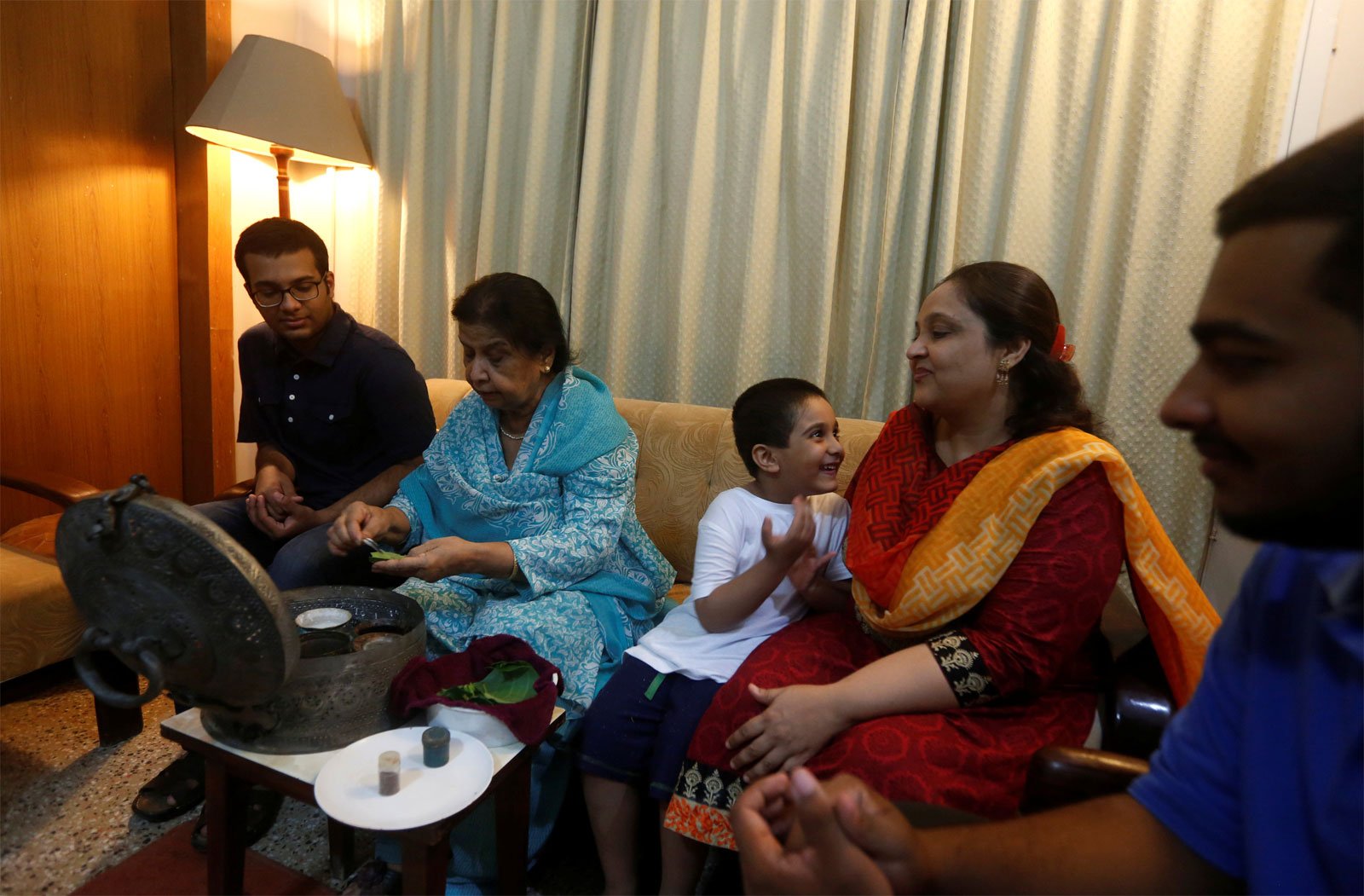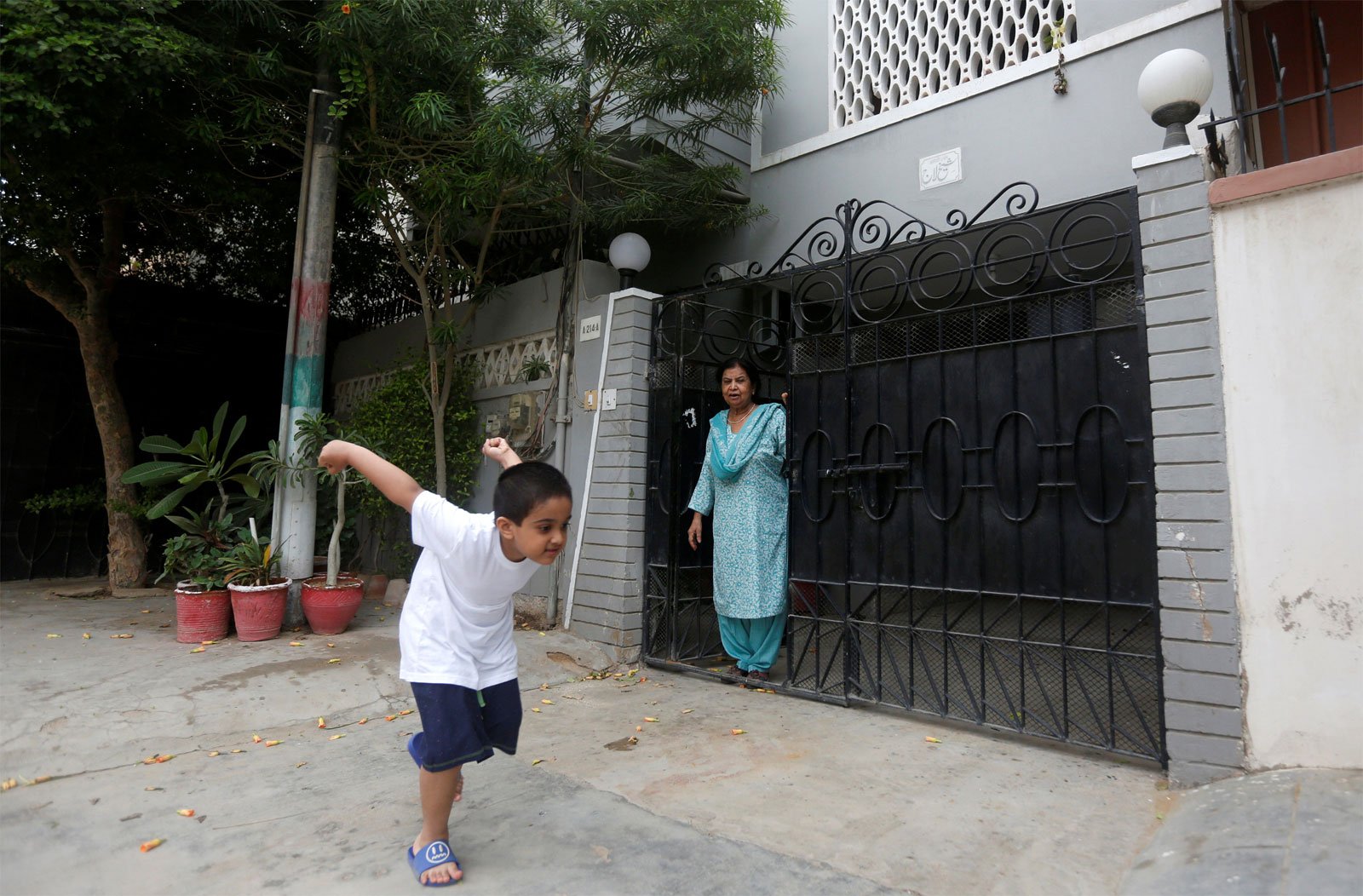Divided Muslim family yearns to reunite 70 years after independence
KARACHI/NEW DELHI: As Pakistan and India prepare to celebrate 70 years of independence from Britain next week, thousands of families in the nuclear-armed neighbours remain divided by a border that strained diplomatic ties make harder to cross.
Pakistan and India have fought three wars since 1947, and relations remain tense, particularly when it comes to Indian occupied Kashmir.
"The people who have migrated are not able to come to India, nor can we go there freely," said Asif Fehmi, a resident of a New Delhi neighbourhood where thousands of Muslim families divided by Partition have blood ties over the border.
"We can't meet them freely, and there was a time when we couldn't talk to them freely."

Fehmi's family was among the millions of people whose lives were disrupted in 1947, after departing British colonial administrators ordered the creation of two countries - one mostly Muslim and one majority Hindu.
A mass migration followed, marred by violence and bloodshed, as about 15 million Muslims, Hindus and Sikhs, fearing discrimination, swapped countries in a political upheaval that cost more than a million lives.
Many survivors of the bloodshed found themselves separated from family on the other side of a hastily drawn-up border.
"I was unable to understand what Partition was, because I was not old enough," said Rehana Hashmi, 75, whose family migrated from India to Pakistan's southern city of Karachi in 1960. "My brother told me that India and Pakistan had emerged."
The move to Pakistan, when Hashmi's father retired from a career in India's railways, left behind many close relatives, but they kept in touch.

When Hashmi's husband, Khurshid, died in 1990, bringing to a close a 26-year-long marriage, his first cousin, Asif Fehmi, sought a Pakistani visa to attend the funeral.
"I knew some people in the Pakistan embassy," said Fehmi. "I finally got the visa, but when I reached there, it was already over. So, at a time when we should have been there, we weren't."
For the Hashmis and the Fehmis, as for thousands of other families, the quarreling has meant fewer visits across the border.
-
Security forces gun down 30 terrorists in multiple IBOs in KP: ISPR
-
MQM-P calls for new province in Sindh
-
US report validates Pakistan military edge over India: PM
-
Banned TTP poses serious threat to Pakistan security: UNSC panel
-
CM Afridi clarifies remarks on by-poll after ECP requests army deployment
-
Dubai sees 3.2m Pakistani passengers in 2025 as airport sets new milestone
-
Security forces kill 23 Indian proxy terrorists in KP's Kurram
-
Pakistan to construct island to boost oil exploration: report











